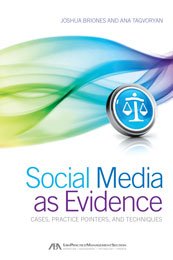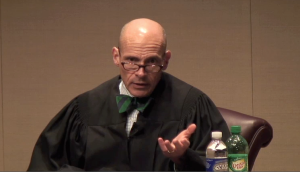 Recently, the eDiscovery and litigation support field has seen many developments reflecting a significant shift in the eDiscovery software industry. Greg Buckles and Barry Murphy of The eDiscovery Journal report in several articles and notes in the past few weeks that they see a palpable transition away from software back towards services by corporations seeking to address their eDiscovery requirements. So not surprisingly, there had been various reports indicating reductions in force at several of the top eDiscovery software providers.
Recently, the eDiscovery and litigation support field has seen many developments reflecting a significant shift in the eDiscovery software industry. Greg Buckles and Barry Murphy of The eDiscovery Journal report in several articles and notes in the past few weeks that they see a palpable transition away from software back towards services by corporations seeking to address their eDiscovery requirements. So not surprisingly, there had been various reports indicating reductions in force at several of the top eDiscovery software providers.
Not to pick on Guidance Software, my former company, but they are publically traded and recently disclosed their aggressive cost-cutting measures. In their PowerPoint presentation, Guidance states that the eDiscovery software field “is maturing…not as many large deals available there” resulting in a strategy for the company to refocus on core computer forensics and computer security, and to pivot toward profitability over topline revenue growth. And I don’t think what Guidance is experiencing is much different than from what many other eDiscovery software firms in the space are going through.
And neither does industry analyst Barry Murphy. “Based on what I see, KCura with their Relativity product is doing well, and I think there has been some good growth in the mobile forensics space, and X1 has done well with X1 Social Discovery in terms of growth and customer acquisition. Other than that, it seems that the remaining eDiscovery software companies are either contracting or experiencing only very modest growth.”
Part of the problem is that many aggressive enterprise eDiscovery deployments never achieve their promise of global scalability. A little over a year ago, the CEO of another eDiscovery and forensics software firm publicly claimed that enterprise-wide Autonomy implementations for eDiscovery, in his opinion, never really worked that well from what he could see. Without commenting on or taking a position on the accuracy of that assertion, the article does reflect broader frustrations I have heard from IT and in-house counsel about eDiscovery software in general that claims to be an end-to-end solution for aggressive and enterprise-wide deployments. As a result, many corporate legal departments and corporate IT have opted to continue to outsource eDiscovery to service providers over attempting to implement enterprise-wide solutions.
On the other hand, and reflective of this trend, services firms in this space are apparently doing quite well and their numbers are growing. There are clearly hundreds, if not over a thousand consulting firms, in North America providing eDiscovery consulting services. In just one metric, two years since we launched X1 Social Discovery, nearly 200 eDiscovery and computer forensics firms have become paying customers, and many more are currently evaluating. Some firms have a single license of X1, many have multiple, even dozens. I think those figures reflect both the number of service providers in this space and the aggressive spending behavior from the providers.
I also think, and of course being biased, that with X1 Social Discovery gaining over 400 paid install sites in just two years since the launch of the product, with 250 percent increase in annual sales in 2013, is quite an accomplishment especially given the status of this market. I think that reflects both the quality of X1 Social Discovery as well as the compelling use case of the collection and preservation of social media data for discovery and investigative purposes. So I want to take this opportunity to thank our customers for making 2013 a great year for us and driving the further development and enhancements of our products.
I’m looking forward very much to Legal Tech New York this year, both to meet with our customers old and new, and to speak with some fellow executives about how they are adapting to the changes in the eDiscovery market and opportunities in 2014. I hope to see you there!





